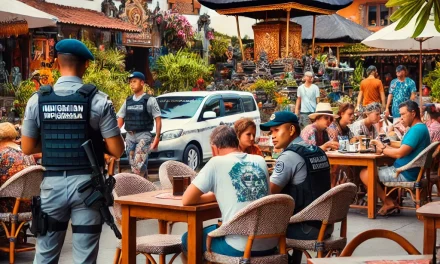When you hear the word eco-tourism, what comes to mind? For many of us, it evokes beautiful landscapes, unique wildlife, and the promise of a vacation spent in harmony with nature. But there’s so much more to it than just picturesque views and relaxing beach days, especially in places like Kuta, Bali.As someone who has wandered the streets of Kuta and soaked in its sun-soaked beaches, the role of eco-tourism in supporting local communities has always piqued my interest. Let me share some insights on how Kuta’s eco-tourism sector is not just a sanctuary for travelers but also a boon for its local residents.
Economic Opportunities for Locals
Imagine waking up in a small Balinese village just outside Kuta, surrounded by lush rice terraces and the distant sound of waves crashing. The traditional way of life here is both serene and fragile, largely dependent on agriculture and tourism. With eco-tourism, local families have found new avenues for income that respect their culture and environment.
Take Nyoman’s family, for instance. Nyoman owns a small homestay that he started when he noticed an influx of travelers seeking authentic experiences. With eco-tourism promoting sustainable practices, he learned how to engage with visitors meaningfully without compromising his traditions. Now, he not only receives tourists but shares his passion for Balinese cooking and traditional ceremonies, turning his family kitchen into a culinary class.
By encouraging visitors to experience local culture, eco-tourism provides stable income, helping families like Nyoman’s thrive while preserving their heritage.
Environmental Awareness
Eco-tourism isn’t just about economic benefit; it also fosters a sense of responsibility toward the environment. Travelers coming to Kuta often embrace sustainability, leading locals to adopt eco-friendly practices.
For instance, while sipping on fresh coconut water at a beachside warung (local eatery), I once chatted with Wayan, a friendly vendor who noticed a growing concern among tourists regarding plastic waste. Inspired by their enthusiasm, he started promoting reusable bags and even organized community clean-up events with tourists participating. His efforts haven’t just beautified the beach but have also instilled a sense of pride among locals about preserving their natural surroundings.
Every small action counts, and through eco-tourism, locals are not only safeguarding their environment but also setting a precedent that encourages younger generations to follow suit.
Cultural Exchange and Understanding
Perhaps one of the most enriching aspects of eco-tourism is the cultural exchange it fosters. People from various backgrounds come together to share experiences, stories, and traditions. In Kuta, this often occurs during traditional festivals where tourists are invited to join in, learn, and celebrate.
Picture this: you’re participating in a local ceremony, dressed in the traditional Balinese attire alongside local women explaining the significance of each offering. This isn’t just a spectacle for tourists; it’s a genuine moment of connection where cultural heritage shines, and local practices are valued. Through these interactions, tourists leave with newfound appreciation while locals gain respect for their customs.
Empowering Women and Youth
One of the standout benefits of eco-tourism in Kuta is the empowerment of women and young people. Many initiatives focus on training women in entrepreneurial skills, from crafting handmade goods to running eco-friendly businesses. For instance, I met a group of local women who started a cooperative to create artisan crafts made from natural and recycled materials. Not only did this provide them with a source of income, but it also offered a platform to teach their children about sustainability and entrepreneurship.
Similarly, eco-tourism initiatives often engage youth, providing them with training in hospitality and customer service. This learning empowers young people to pursue jobs in the growing eco-tourism sector, ensuring that local communities benefit long-term from the influx of visitors.
Practical Tips for Supporting Eco-Tourism in Kuta
If you’re thinking about visiting Kuta and want to make a positive impact, here are some practical tips:
1. Stay Locally: Choose eco-friendly accommodations like homestays or eco-resorts that support local families.
2. Eat Local: Dine at local warungs instead of international chains to contribute to the community’s economy.
3. Participate in Activities: Engage in eco-tours and cultural experiences offered by locals, like traditional cooking classes or guided nature walks.
4. Be Mindful: Reduce plastic use by bringing your reusable water bottle and shopping bags, and respect local customs and practices.
5. Volunteer: Look for volunteer opportunities that help preserve the environment or support community projects.
Conclusion
Kuta’s eco-tourism initiative is more than just a trend; it’s a movement that transforms lives and landscapes in beautiful, impactful ways. By choosing to travel eco-consciously, we can contribute to local communities, protect our planet, and share in authentic cultural experiences that enrich our lives. So, whether you’re lounging on Kuta’s sunny beaches or exploring its vibrant streets, remember: your travel choices make a world of difference! Let’s support eco-tourism and preserve the essence of Kuta for generations to come. Safe travels!






